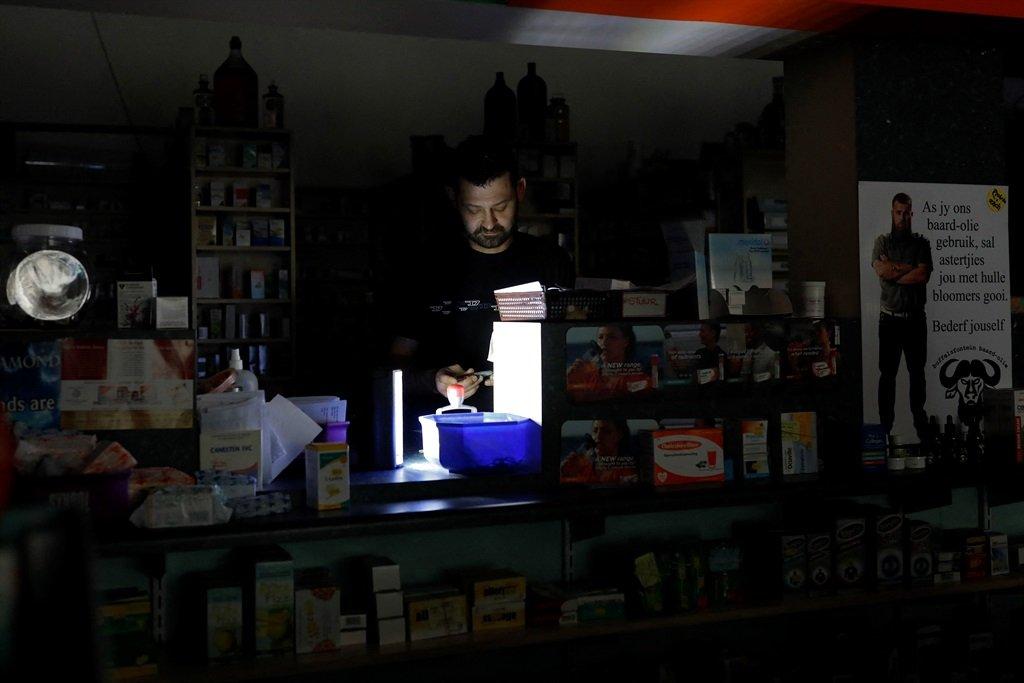Africa-Press – South-Africa. Only 16% of the population has access to electricity and therefore, the solutions to address the ongoing energy crisis present an opportunity to leave no one behind, writes Nqobile Xaba.
South Africa has been hit by its worst power cuts this year due to the power utility, Eskom, being unable to meet the country’s power needs.
The latest cycle of power cuts plunged the country into stage 6 of load shedding earlier this week leaving frustrated South Africans without power for several hours per day. Eskom has been inundated with power plant maintenance issues which has caused several units to shut down.
The ongoing power cuts make a total blackout a looming reality and a possibility in the near future. It’s hard to imagine what life would look like in South Africa if the Eskom grid were to collapse and cause a total blackout.
However, it is not that hard to imagine for the South Africans that have never had access to the electricity grid and live in energy poverty daily.
In South Africa, 16% of the population do not have access to electricity and therefore, the solutions to address the ongoing energy crisis present an opportunity to leave no one behind by addressing it with solutions that do not further perpetuate energy poverty.
Breakdown nation: From global leader to local pariah
In the event of a blackout, the select few that can afford alternative power sources and those already off the grid will continue to generate electricity for their needs, while the majority, made up of the marginalised and low-income households, will not have any means to access electricity. South Africa can’t afford to have energy access as a right of the few. South Africa urgently needs more permanent solutions to solve its energy crisis that leaves no one behind and for equitable energy access.
Tariff increase request
In an attempt to solve its debt crisis, Eskom has applied for a 32% tariff increase from 1 April 2023/2024 in an effort to raise revenue from consumers. This application is under consideration by the National Energy Regulator of South Africa (NERSA). This proposed tariff increase is shifting the costs of load shedding to consumers who are already suffering the burden of rising living costs and energy costs while not having access to this power service for hours daily.
The World Bank estimates that nearly 90 million people in Asia and Africa who had previously gained access to electricity before the Covid-19 pandemic, can no longer afford to pay for their basic energy needs due to the rising cost of living. In South Africa, 55.5% of the population lives in poverty according to the Statistics South Africa. The energy crisis must be resolved with solutions that also takes into consideration the consumers and more so, the poor who already can’t afford the rising electricity costs.
While it is urgent that Eskom addresses the debt issue, this proposed new tariff system is outrageous given the socio-economic challenges in South Africa. The poor already bear the worst of energy poverty due to being in marginal areas where the grid doesn’t reach, and an inability to afford to purchase electricity due to other more urgent expenses, including food.
Decades of decline: How Eskom fell from best in the world to national disgrace in just 20 years
This proposed tariff restructuring will further exacerbate energy poverty and inequality. The energy crisis and Eskom debt must be addressed with solutions that take cognisance of the socio-economic challenges that the country grapples with to bridge the existing inequality gap. The solutions to the ongoing energy crisis must be able to deliver affordable, reliable, and sustainable energy for all.
The ongoing energy crisis affects all citizens, and the urgency to resolve it is well understood. Now more than ever, urgent and pragmatic intervention is needed to avert the threat of a blackout.
Decarbonise
However, addressing the energy crisis should be done in a manner that will first ensure the sustenance of livelihoods through affordable energy.
Secondly, it must help South Africa deliver on the sustainable development goals by reducing energy poverty through nationwide energy access.
Lastly, tackling the energy crisis should assist South Africa meet its obligation to the Paris Agreement to decarbonise by providing sustainable clean energy.
Mapungubwe Institute for Strategic Reflection’s latest publication, A Just Transition to a Low Carbon Future in South Africa, emphasises these considerations. The publication further recommends that these considerations must be embedded in energy policy and a priority when the actions and plans to address the energy crisis are being implemented by the government departments.
– Dr Nqobile Xaba is Researcher at the Knowledge Economy and Scientific Advancement Faculty at the Mapungubwe Institute for Strategic Reflection (MISTRA).
*Want to respond to the columnist? Send your letter or article to [email protected] with your name and town or province. You are welcome to also send a profile picture. We encourage a diversity of voices and views in our readers’ submissions and reserve the right not to publish any and all submissions received.
For More News And Analysis About South-Africa Follow Africa-Press






